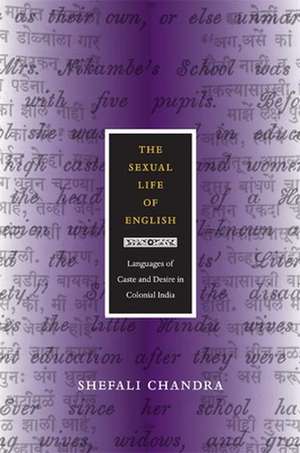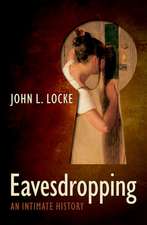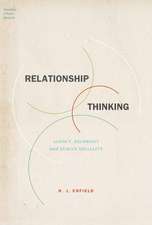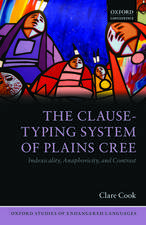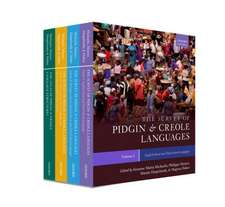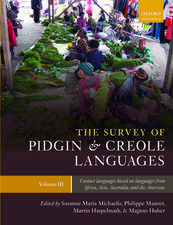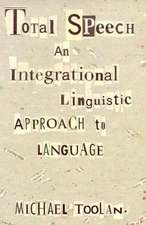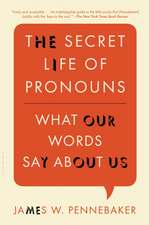The Sexual Life of English – Languages of Caste and Desire in Colonial India: Next Wave: New Directions in Women's Studies
Autor Shefali Chandraen Limba Engleză Paperback – mai 2012
Din seria Next Wave: New Directions in Women's Studies
-
 Preț: 166.70 lei
Preț: 166.70 lei -
 Preț: 174.02 lei
Preț: 174.02 lei -
 Preț: 218.88 lei
Preț: 218.88 lei -
 Preț: 251.87 lei
Preț: 251.87 lei -
 Preț: 158.45 lei
Preț: 158.45 lei -
 Preț: 166.70 lei
Preț: 166.70 lei -
 Preț: 209.72 lei
Preț: 209.72 lei -
 Preț: 302.19 lei
Preț: 302.19 lei -
 Preț: 260.41 lei
Preț: 260.41 lei -
 Preț: 300.24 lei
Preț: 300.24 lei -
 Preț: 212.10 lei
Preț: 212.10 lei -
 Preț: 202.80 lei
Preț: 202.80 lei -
 Preț: 301.20 lei
Preț: 301.20 lei -
 Preț: 306.00 lei
Preț: 306.00 lei -
 Preț: 251.12 lei
Preț: 251.12 lei -
 Preț: 262.70 lei
Preț: 262.70 lei -
 Preț: 309.49 lei
Preț: 309.49 lei -
 Preț: 265.79 lei
Preț: 265.79 lei -
 Preț: 237.47 lei
Preț: 237.47 lei -
 Preț: 263.29 lei
Preț: 263.29 lei -
 Preț: 261.38 lei
Preț: 261.38 lei -
 Preț: 262.52 lei
Preț: 262.52 lei -
 Preț: 301.20 lei
Preț: 301.20 lei -
 Preț: 266.18 lei
Preț: 266.18 lei -
 Preț: 262.32 lei
Preț: 262.32 lei -
 Preț: 263.09 lei
Preț: 263.09 lei -
 Preț: 262.32 lei
Preț: 262.32 lei -
 Preț: 259.42 lei
Preț: 259.42 lei -
 Preț: 219.70 lei
Preț: 219.70 lei -
 Preț: 301.38 lei
Preț: 301.38 lei -
 Preț: 260.19 lei
Preț: 260.19 lei -
 Preț: 196.55 lei
Preț: 196.55 lei -
 Preț: 261.38 lei
Preț: 261.38 lei -
 Preț: 304.10 lei
Preț: 304.10 lei -
 Preț: 205.09 lei
Preț: 205.09 lei -
 Preț: 211.33 lei
Preț: 211.33 lei - 19%
 Preț: 636.69 lei
Preț: 636.69 lei
Preț: 263.29 lei
Nou
Puncte Express: 395
Preț estimativ în valută:
50.38€ • 52.60$ • 41.70£
50.38€ • 52.60$ • 41.70£
Carte tipărită la comandă
Livrare economică 05-19 aprilie
Preluare comenzi: 021 569.72.76
Specificații
ISBN-13: 9780822352273
ISBN-10: 0822352273
Pagini: 288
Dimensiuni: 156 x 235 x 22 mm
Greutate: 0.43 kg
Editura: MD – Duke University Press
Seria Next Wave: New Directions in Women's Studies
ISBN-10: 0822352273
Pagini: 288
Dimensiuni: 156 x 235 x 22 mm
Greutate: 0.43 kg
Editura: MD – Duke University Press
Seria Next Wave: New Directions in Women's Studies
Recenzii
The Sexual Life of English poses a significant challenge to modern Indian history, which has tended to take the links between language and culture and the gendered colonial self for granted, when engaging the latter at all. From now on, it will be impossible to grapple with liberalism, education, women, domesticity, class and caste, conjugality, nationalism, sexuality, and so much more without reckoning with Shefali Chandras cogent, subversive arguments.Antoinette Burton, author of Empire in Question: Reading, Writing, and Teaching British ImperialismShefali Chandras complex rethinking of cultural theory and modern Indian history is remarkable and her major thesis, that Indian English has a brutal and loving social history of sexualization will set a model for analogous studies in other national traditions. Her breakthrough point is that English acquisition produced male cultural authority through the installation of bio-sexual difference. The point, then, is not the phallologocentrism of English as English but rather the installation of a native phallogocentric power in the processes of colonization and post-colonization. The deeply researched characters that Chandra marshals to make her philosophic points are shown in all their pride, suffering, arrogance, shame, love, anger as Chandra builds her case that English was never neutral. Every one of us who has read and found wanting the orthodox position established in Subaltern Studies historiography will find The Sexual Life of English an exhilarating read, both expert and non-expert alike. With Shefali Chandras pathbreaking work the speech of Indian woman is suddenly agential. Tani E. Barlow, author of The Question of Women in Chinese Feminism
Notă biografică
Descriere
This book uses English language education for women in India between 1850 and 1940 as a way to explore how and why the English language became a powerful tool in struggles over caste hierarchy. The author shows how elite men linked ideas of matrimony (monogamous and once-only), chastity, and heteronormativity with modernity in order to claim power on a national level.
